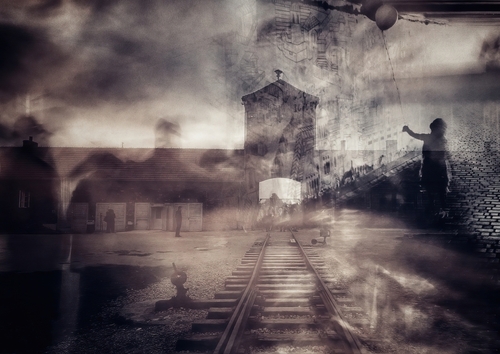In a worrying trend, the majority of Jewish people in Europe are concealing their identity due to a surge in antisemitism, according to recent reports. This resurgence of anti-Jewish sentiment has reached levels unseen in decades, prompting many to take drastic measures to ensure their safety.
A comprehensive survey by the European Union Agency for Fundamental Rights revealed that 89% of Jews in Europe perceive antisemitism as a growing issue in their countries, with 85% stating that it has significantly worsened over the past five years. This uptick in hostility has forced many Jews to avoid wearing religious symbols, such as kippahs and mezuzahs, and even to stop speaking Hebrew in public.
Can we finally all admit antisemitism is a real issue now or? pic.twitter.com/hEATufuEHe
— Luc Bernard (@LucBernard) July 12, 2024
The increase in antisemitic incidents is particularly pronounced in countries like France, Germany, and the Netherlands. In France, the number of reported antisemitic acts has skyrocketed, with nearly 600 incidents recorded in just the past few months. This includes physical assaults, threats, and vandalism of Jewish institutions.
The Netherlands has seen a shocking 818% rise in antisemitic incidents, prompting many Jewish families to consider emigration. Naomi Mestrum, director of the Dutch Jewish organization CIDI, described the environment as one where "Jewish or Israeli kids are being attacked because of what’s going on in Israel and Gaza".In Germany, the situation is similarly dire. The Anti-Defamation League (ADL) reported that antisemitic incidents doubled in late 2023 compared to the same period the previous year. High-profile attacks, such as the defacing of synagogues and harassment of Jewish individuals, have become alarmingly common.
Every single university who hasn't done this simply doesn't have the will to remove antisemitism from campus. When there is a will, there is a way. All other universities, take note! pic.twitter.com/7ytt8Ispwj
— Dr. Sheila Nazarian (@DoctorNazarian) July 11, 2024
The recent conflict between Israel and Hamas has exacerbated these tensions, with many antisemitic incidents directly linked to the war. The Tel Aviv University’s Center for the Study of Contemporary European Jewry noted that antisemitism often flares up during conflicts in the Middle East, but the current wave is unprecedented in its intensity and scope.Governments across Europe are struggling to respond effectively. In France, attempts to ban pro-Palestinian demonstrations, which officials feared could incite further antisemitic violence, have been met with accusations of suppressing free speech. This delicate balance between maintaining public order and protecting civil liberties has left many Jewish communities feeling vulnerable.
In the UK, the Metropolitan Police have faced criticism for their handling of protestors. A particular flashpoint has been the chant "From the river to the sea, Palestine will be free," which some interpret as a call for the elimination of Israel. While authorities have declared certain uses of the chant illegal, enforcement has been inconsistent, leading to further anxiety within the Jewish community (Jewish Telegraphic Agency) (Human Rights Watch).
Prominent Jewish leaders and human rights organizations are calling for more robust measures to protect Jewish communities. Human Rights Watch emphasized the need for education about the Holocaust and the dangers of antisemitism, urging European governments to take a firmer stand against hate while ensuring legitimate protests can continue (Human Rights Watch).
The persistent rise in antisemitic incidents has left many Jews in Europe questioning their future on the continent. With a significant portion considering emigration and others taking steps to hide their identity, the Jewish experience in Europe is increasingly marked by fear and uncertainty (Jewish Telegraphic Agency) (DW).

